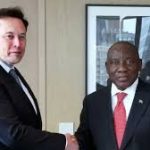Vodacom has expressed its support for the Independent Communications Authority of South Africa (ICASA) in its decision to prevent Starlink, the satellite Internet service operated by Elon Musk’s SpaceX, from operating in the country. Vodacom,one of South Africa’s leading telecommunications companies, emphasized the importance of adhering to Black Economic Empowerment (BEE) laws, which mandate that any telecom company seeking a license in the country must have at least 30% ownership by historically disadvantaged South Africans.
Starlink has yet to apply for the necessary Electronic Communications Network Services (ECNS) and Electronic Communications Services (ECS) licenses required by ICASA to operate legally within South Africa. According to ICASA, Starlink’s business model, which avoids local equity partnerships, conflicts with South African regulations.
Vodacom’s backing of ICASA’s position is seen as part of a broader effort by local operators to support economic transformation and inclusivity within the telecommunications sector. Vodacom stated, “We believe in the importance of adhering to national regulations that promote inclusivity and redress historical inequalities,” and stressed that BEE compliance is crucial for sustainable and equitable growth in the country’s telecom sector.
While Starlink has already begun operations in several neighboring countries such as Mozambique, Lesotho, and Botswana, where regulations are more lenient, the refusal of Starlink’s entry into South Africa has sparked debate. Critics argue that the ban limits consumer choice, especially in underserved rural areas, where satellite Internet could offer much-needed connectivity.
Despite these concerns, ICASA and its supporters maintain that the country’s economic transformation objectives must take precedence over immediate access to new technologies. The decision has sparked wider conversations across African markets about the balance between fostering innovation and ensuring that local businesses and historically disadvantaged groups are not left behind in the digital age. How South Africa and other African nations navigate these challenges could set a precedent for the future of foreign tech innovation and economic empowerment across the continent.










